Generally, the police need individualized suspicion — what the law calls either “probable cause” or “reasonable suspicion” – to pull over a vehicle in Tennessee For example, if a person is speeding, that gives the officer sufficient cause or individualized suspicion to pull over the vehicle in question. What this means is that officers generally cannot pull over a particular vehicle based on a hunch or for an illegitimate reason, such as the race of the driver.
However, there is one glaring exception to this general rule and that is a DUI checkpoint system operated according to consistent and neutral standards. Tennessee law enforcement agencies routinely use such DUI checkpoints as an effort to reduce drunk driving. Sometimes known as sobriety checkpoints, these stops are initiated by law enforcement to check for impaired drivers.
Tennessee law enforcement officers may set up DUI checkpoints at specific locations to check whether drivers are impaired. However, the checkpoint must meet certain legal standards. If you have been arrested for a DUI after a sobriety checkpoint, you need an experienced criminal defense attorney to help you fight those charges.
Tennessee DUI Checkpoints
Tennessee does allow for DUI checkpoints but only under certain circumstances. The Tennessee Supreme Court has explained that “[a] roadblock seizure . . . is a departure from . . . fundamental constitutional principles [because] [i]t permits officers to stop and question persons whose conduct is ordinary, innocent, and free from suspicion.” State v. Downey, 945 S.W.2d 102, 104 (Tenn. 1997). The state high court determined that the constitutionality of such seizures depends upon a balancing of (1) the public interest served by the seizure, (2) the degree to which the seizure advances that public interest, and (3) the severity of the interference with an individual’s liberty. State v. Downey, 945 S.2d. 2d at 107. The state high court further explained that “that the use of a sobriety roadblock may be used to advance the State’s compelling interest provided it is established and operated in a manner that minimizes intrusion and limits discretion.” State v. Downey, 945 S.2d at 110.
The Tennessee Supreme Court elaborated on the requirements for a roadblock or checkpoint to be constitutional:
Two facts are critical to finding that the officers’ discretion on the scene was properly limited: (1) the decision to set up the roadblock in the first instance cannot have been made by the officer or officers actually establishing the checkpoint, and (2) the officers on the scene cannot decide for themselves the procedures to be used in operating the roadblock. In all cases, therefore, the State must show that some authority superior to the officers in the field decided to establish the roadblock, particularly as to its time and location, and that the officers adhered to neutral standards previously fixed by administrative decision or regulation. State v. Hicks, 55 S.W.3d 515 (Tenn. 2001).
If the DUI checkpoint system does not meet these standards, a court could find that such a system violates either the Fourth Amendment to the United States Constitution or Article I, Section 7 of the Tennessee Constitution. Both of these provisions provide a great deal of protection for individual liberty from governmental invasions of privacy.
You Need an Attorney
Needless to say, the law surrounding the constitutionality of DUI checkpoints is complex. That is why if you are facing charges emanating from a DUI checkpoint stop, then you need to enlist the services of a criminal defense attorney well-versed in constitutional criminal law principles.
Nashville-based criminal defense Philip Clark is an attorney who understands the nuances of defending against DUI charges from DUI checkpoint stops. He not only has handled many DUI cases, but he also formerly served as a police officer for nearly twenty (20) years. He knows the ins and outs of the law enforcement community. He also is a gifted negotiator and communicator who can speak to prosecutors effectively on your behalf. If need be, he zealously can defend you in court before a judge and jurors. If you face DUI charges from a checkpoint, contact Philip Clark at (615) 678-1033 or e-mail him at philip@tncriminaldefenseattorney.com.
Connect with Philip N. Clark right away!
(615) 785-2000

